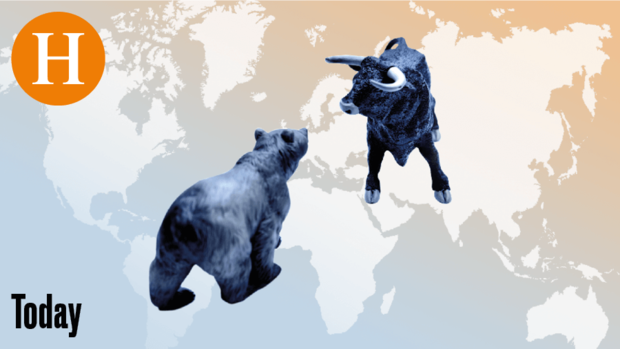Dusseldorf The oil alliance OPEC plus wants to produce up to two million barrels less per day from November. The decision was made at a meeting in Vienna on Wednesday, which was also attended by Russian Energy Minister Alexander Novak. He is considered the driving force behind the production cut.
In view of the slowdown in the global economy, oil exporters are assuming that demand will be lower in times of recession and want to proactively stabilize the oil price with production cuts. However, the step could exacerbate the energy price crisis, especially in Europe, fuel inflation and possibly cause the central banks to stick to a tight monetary policy for longer, which in turn would intensify and prolong an impending recession.
Handelsblatt commodity expert Jakob Blume believes the deal will most likely help Opec-plus member Russia mitigate the impact of the price cap on Russian oil. The G7 industrialized countries also initiated this on Wednesday. “Opec plus forestalled the planned sanctions by the West and Russia is currently one of the biggest beneficiaries of the deal,” says Blume in the new episode of Handelsblatt Today.
The oil cartel’s decision is contrary to Western interests: the talks between US President Joe Biden, French President Emmanuel Macron and German Chancellor Olaf Scholz, who had negotiated with Saudi Arabia about expanding oil production, remained fruitless.
Top jobs of the day
Find the best jobs now and
be notified by email.
The US does not have many options for action
For Biden, the Opec decision comes at a difficult time. Before the important midterm elections in November, Biden had actually hoped for falling fuel prices. The fact that Saudi Arabia is now siding with Russia is likely to put additional strain on the relationship.
Most recently, the USA had repeatedly tapped into the country’s strategic oil reserves in order to slow down the rise in prices on the world market. “However, the effects were short-lived,” says Blume in an interview with host Anis Mičijević. “Investors don’t let themselves be fooled, at some point the strategic oil reserve will have to be replenished,” explains Blume.
In addition, Handelsblatt stock market expert Ulf Sommer talks in this episode about why the large US corporations are increasing their gap to European companies.
We have an exclusive subscription offer for you as a Handelsblatt Today listener: test Handelsblatt Premium for 4 weeks for 1 € and stay informed about what’s moving the financial markets. More information is available here.
If you have any comments, questions, criticism or praise for this episode, please email us at: [email protected]
From now on we can be reached on WhatsApp, Signal and Telegram on the following number: 01523 – 80 99 427
